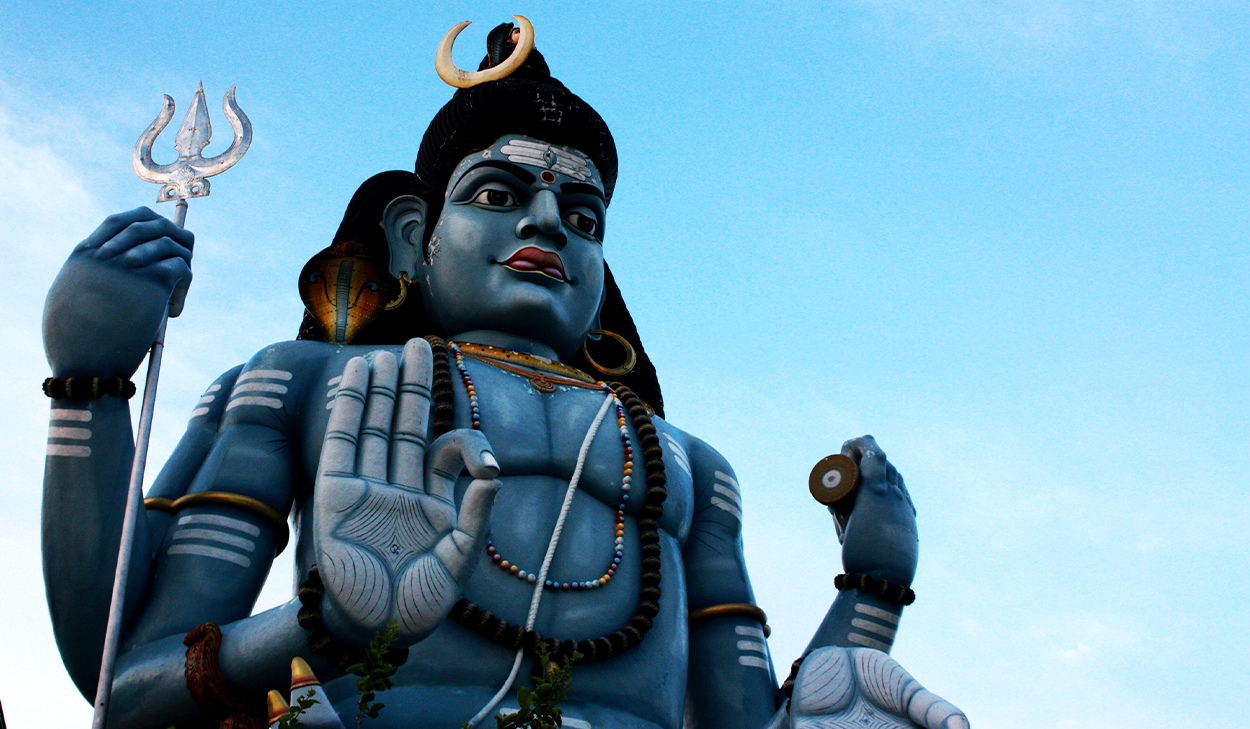
Every year in the late winter season, devotees of the Hindu god Shiva celebrate Maha Shivaratri, meaning “Great Night of Shiva” in Sanskrit. This is celebrated as one of the biggest festivals for a day of thanksgiving and worship to Shiva on behalf the Hindus.
Maha-Shivaratri
Shiva, also spelled Śiwa or Śiva, means “Auspicious One” in Sanskrit and is one of the main deities of Hinduism. There are several roles in which Shiva partakes, including great ascetic, master of fertility, master of poison and medicine, and lord of the cattle. Those who worship Shiva as a god are known as Shaivites, and they celebrate Maha Shivaratri to honor his protection of the world from destruction. It is believed during the churning of the milky ocean (Kshir Sagar), a deadly poison called halahala was released, which caused the other gods to elicit Shiva’s help. Shiva agreed to save the world from destruction by holding the poison in his throat, on the condition he would receive passionate devotion from the Earth’s inhabitants. This day is also a celebration of Shiva’s marriage to Parvati and his creation of the Ganges River Valley.
Maha-Shivaratri is intended for humans to fulfill their promise to Shiva by showing their devotion through various rituals of worship. On this day, Hindus cleanse themselves, wear clean clothes, and mark their heads with sacred ash. They then observe fasting to detoxify the body and to aid in their day-long mediation. A cylindrical, pillar-like symbol known as a Shiva linga or a lingam is used to present offerings. Hindus first cleanse the artifact and then offer vermilion paste, fruits, incense, and leaves. The night is divided into four “prahars” or quarters. After each prahar, Hindus pray a special prayer and bathe in milk, curd, ghee, and honey. Finally, a service is conducted, which involves singing and dancing to give one happiness in this world and the next, regardless of class.
Gospel Opportunity
Shiva chose to save humanity in order to gain people’s devotion to him. Contrastingly, our God is a loving Father who sacrificed His Son to save His people (John 3:16). Because Hindus believe in a works-based religion, you will want to focus on the personal impact God’s free gift of grace through faith, not works. For Hindus, the consequences of their bad actions accumulate throughout life; but for the Christian, we have access to God’s unlimited forgiveness of all our wrongdoings. The goal should be to explain what terms like “sin” and “salvation” mean to you as they would mean something different to them.
Hinduism is a polytheistic religion with more than 330 million gods and goddesses and is based on reincarnation and a caste system. Due to their practice of worshipping the most gods out of any world religion, Hindus are very open to conversations about faith, and they believe in the power of prayer. With such a strong belief in prayer, ask them if you can pray for them in the name of Jesus and establish the connection of Jesus as a historical figure who deeply loves all people. Ultimately our friends should feel loved and shown that our God is an extremely gracious God who makes His love available to all.